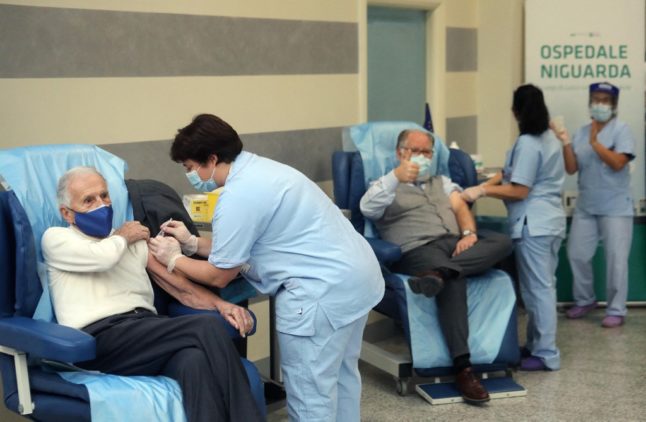The special fund for the Ministry of Health is included in a draft of Italy's next budget, about to be scrutnised by parliament.
It is not known which drugs or vaccines the health ministry is planning to purchase.
Hopes for a vaccine were raised again on Monday as US firm Moderna announced a vaccine in development has proven 94 percent effective in trials.
READ ALSO: Covid-19 vaccine found to be '90 percent effective', says Germany-based biotech firm
The news came hot on the heels of an announcement last week that a 90% effective vaccine may soon be available from Germany-based BioNTech and its American partner Pfizer as it published the results of their first large-scale trials, which are still ongoing.
This figure may yet increase, as the plan is likely to be revised in the coming weeks after already facing long delays.
Other measures in the draft, which have not yet been confirmed, include a four-bilion-euro fund to support the businesses hit hardest by the coronavirus outbreak and the subsequent shutdowns. These are defined as having a “decrease in turnover of at least 30%”.
It's not clear from the draft how exactly the further funding would be distributed.
The budget plan also includes tax breaks aimed getting more women back into work, and at encouraging more electronic payments.
A planned 25 percent tax increase on e-cigarettes has reportedly been scrapped.



 Please whitelist us to continue reading.
Please whitelist us to continue reading.
Member comments